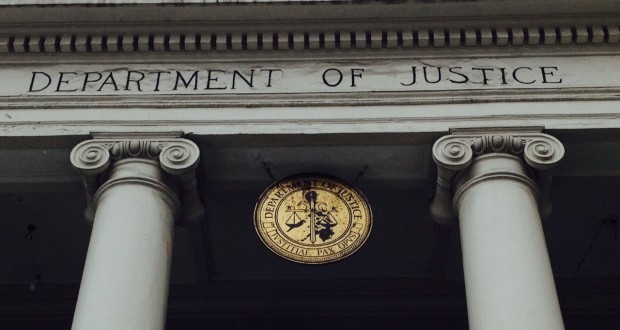
The Department of Justice. INQUIRER file photo
MANILA, Philippines — Internet service providers (ISPs) may face sanctions for not fulfilling their duties under the Anti-Child Pornography Act of 2009, the Department of Justice (DOJ) said in its recommendation against child exploitation.
Justice Secretary Menardo Guevarra said on Monday that their proposal — which was recently approved by President Rodrigo Duterte — centered on possibly penalizing telecommunication companies and strengthening government response against the growing trend of child exploitation.
Under Republic Act No. 9975, ISPs are mandated to inform civilian law enforcement agencies upon discovery of any child porn materials running through their servers, while ensuring to update the company’s hardware and software with the technology needed to block webpages promoting or showing such photos and videos.
“The following recommendations of the DOJ on fighting online sexual exploitation of children were recently approved by the President: Direct the NTC to impose sanctions on internet service providers for failure to fulfill their duties under RA 9775,” Guevarra told reporters.
“[…] 2. Issue an executive order strengthening cooperation among the Inter-Agency Council Against Trafficking (IACAT), the Inter-Agency Council Against Child Pornography (IACACP), and other relevant agencies,” he added.
Aside from that, the DOJ chief said that they are also looking to pass bills that would amend the current anti-trafficking laws, to ensure that there would be no hindrances to law enforcement when it comes to child exploitation.
“[…] 3. certify as priority the passage of bills amending the anti-trafficking in persons act, so that human trafficking, particularly sexual exploitation of children, will be exempt from the provisions of the anti-wire tapping law; (and) provide more personnel and funding to the IACAT,” he noted
Guevarra’s proposal comes after authorities observed an increase in child pornography being circulated online — whether on social media or explicit sites — during the lockdown periods due to the Covid-19 pandemic.
As early as September 2020, the Anti-Money Laundering Council (AMLC) has warned authorities that over 5,500 suspicious transactions were seen in the months of March and May, separately.
AMLC said that economical challenges in view of the lockdowns as a driving force for young people to go into pornography — a basis echoed by other groups who noted that the downturn of the economy caused by the health crisis forced some students to look for ways to sustain their education.
In response, the Department of Social Welfare and Development vowed to boost their anti-child porn efforts to suppress illicit activities. However, the Commission on Human Rights expressed alarm over stories that minors were engaging in such transactions during the holidays, saying that government should address the issue immediately.
Last January 23, INQUIRER.net released a special report detailing how sex workers are starting to move online amid the travel restrictions imposed by the Covid-19 pandemic — despite concerns over security, privacy, and monetary paper trail.
However, a contending opinion against supposed child and women exploitation is that several individuals jump into the realm knowingly and willingly, as a lot of people in the online alter movement — a social media subcategory where people sell their nude and provocative photos or “content” — believe a way of exploring and forwarding their sexual identity.